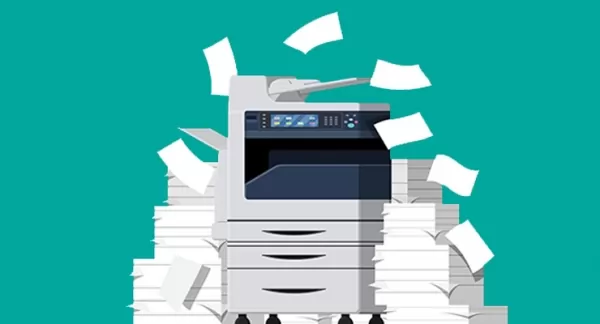The 23 tasks teachers should not do

The DfE’s Workload Reduction Taskforce has published their early recommendations to help reduce working hours for teachers and leaders by 5 hours within the next 3 years.
It includes a list of 23 tasks teachers should not have to do – however, its resemblance is strikingly similar to a list that was generated a decade ago.
As one of its main proposals to address the issue of workload, which has been a prominent topic in education debates for some time, the taskforce suggests the following:
"A revised annex should be reinserted in the STPCD [School Teachers’ Pay and Conditions Document] with an updated list of examples of administrative tasks that teachers should not be required to carry out.”
These examples, listed below in their entirety, encompass activities like bulk photocopying, collecting money from parents or students, and investigating reason pupil absence.
- Managing data and transferring data about pupils into school management systems (e.g. Question Level Analysis) or printing electronic records for paper filing.
- Reformatting data or re-entry of data into multiple systems.
- Production of photographic evidence of practical lessons e.g. for assessment purposes or to ‘evidence’ learning.
- Creation or duplication of files and paperwork perceived to be required in anticipation of inspection, such as copies of evidence portfolios, or regularly updated seating plans.
- Administration or data analysis relating to wraparound care and preparation of food / meals.
- Administration of public and internal examinations.
- Collating pupil reports e.g. reports of pupil examination results.
- Producing and collating analyses of attendance figures.
- Investigating a pupil's absence
- Responsibility for producing, copying, uploading and distributing bulk communications to parents and pupils, including standard letters, school policies, posts on electronic platforms.
- Administration relating to school visits, trips and residentials (including booking venues, collecting forms and recording lunch requirements) and of work experience (but not selecting placements and supporting pupils by advice or visits).
- Organisation, decoration and assembly of the physical classroom space e.g. moving classrooms, moving classroom furniture, putting up and taking down classroom displays.
- Ordering, setting up and maintaining ICT equipment, software, and virtual learning environments (VLEs), including adding pupils to VLEs and online subscription platforms.
- Ordering supplies and equipment.
- Cataloguing, preparing, issuing, stocktaking, and maintaining materials and equipment, or logging the absence of such.
- Collecting money from pupils and parents.
- Administration of cover for absent teachers.
- Co-ordinating and submitting bids (for funding, school status and the like).
- Administration of medical consent forms and administering of medication on a routine or day-to-day basis.
- Taking, copying, distributing or typing up notes (e.g. verbatim notes) or producing formal minutes.
- Producing class lists or physical copies of context sheets.
- Keeping and filing paper or electronic records and data e.g. in school management systems or physical office files.
- Bulk photocopying.
Where has this list been seen before?
Back in 2013, a similar list with 21 points was present in the STPCD on page 64.
Why was it removed? The 2014 report from the School Teachers’ Review Body stated that a prescribed list was unnecessary, and reliance on common sense was preferable. The government adopted this suggestion and Michael Gove, the education secretary at the time, supported it in Parliament.
Gove specifically welcomed the recommendation to eliminate the list of administrative tasks and guidance in section 4. This move aimed to reduce unnecessary guidance, simplify the STPCD, and provide teachers and school leaders with more flexibility to exercise professional judgement and responsibilities. However, after a decade, it appears that this vision has not succeeded as anticipated, and the list is expected to be reintroduced, likely in the upcoming STPCD in September 2024.






